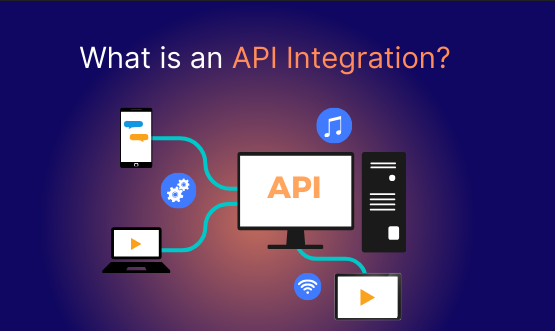The Impact of API Integration on User Experience and Retention in iGaming

When you log into an online casino, place a quick bet, and switch from poker to roulette in under two seconds — that’s not luck. That’s API integration working quietly behind the scenes. In 2024, APIs became the beating heart of iGaming platforms, handling everything from instant payments to live chat to game synchronization.
The iGaming industry reached a record $107.3 billion in global revenue last year, and smooth user experience accounted for nearly 35% of total player retention rates, according to research from Statista. The connection between API quality and user loyalty has never been clearer.
Without APIs, modern online casinos wouldn’t exist — no instant bonuses, no real-time balance updates, and no seamless switching between devices. They’re the unsung heroes of the iGaming world.
Understanding API Integration in iGaming
An Application Programming Interface (API) acts as a digital bridge between casino services — payment systems, KYC providers, gaming servers, and loyalty databases. Instead of manually coding every connection, developers use APIs to let systems talk automatically.
Imagine this: a player logs in, deposits $100 through Visa, gets verified through a third-party KYC service, and launches a live blackjack table — all in under 5 seconds. Each step is powered by API calls running across multiple providers.
In 2023, the average casino handled over 4.8 million API requests per day, up from 2.1 million in 2018. That exponential growth shows how vital these integrations have become for performance and user trust.
User Experience: The Heart of Modern iGaming
User experience (UX) is what keeps players coming back. If the deposit page lags or a game freezes mid-round, frustration replaces fun. Studies show that casinos with smoother UX boast up to 48% higher daily active users.
APIs are the glue that holds this experience together. They make logins instant, allow fast withdrawals, and synchronize live dealer video streams. Without them, even the most beautiful casino interface would crumble.
In 2024, retention rates among casinos with optimized API stacks averaged 38% higher than those using outdated systems. It’s proof that fast, invisible technology matters just as much as flashy design.
Evolution of API Technology in Online Casinos
The Early Years (2010–2015)
Casinos relied on basic REST APIs. Game providers delivered content via simple endpoints; payments were processed manually in many markets. Load times averaged 12 seconds per session, which today would be unacceptable.
The Growth Phase (2016–2020)
The industry saw a boom in mobile gaming. By 2018, over 65% of casino logins came from smartphones. APIs began handling cross-platform compatibility, but security and scalability were still developing.
The Smart Era (2021–2025)
Today’s iGaming platforms rely on complex, modular architectures. Real-time APIs now handle 10–20 million transactions daily. Providers like https://boostylabs.com/igaming/integration specialize in building secure, scalable connections that unify wallets, games, and compliance systems across continents.
API Integration in Action
When a player joins an online casino, more than a dozen APIs start working simultaneously:
- Payment gateway verification
- Fraud detection
- Game launch and balance sync
- Bonus redemption
- Loyalty tracking
In 2023, one major operator processed 19 API calls per user session on average. This invisible choreography creates a frictionless experience that players take for granted — until it fails.
Speed and Stability: The Invisible Competitive Edge
Speed isn’t just a perk — it’s profit. Research by NewZoo in 2024 showed that a 0.5-second delay in loading a live dealer table reduced bets by 7%. Every millisecond matters when real money is involved.
Casinos with high-performing API frameworks enjoy uptime levels of 99.99% and session continuity across devices. Meanwhile, platforms suffering from API latency or failed responses can lose up to $1.2 million per year in missed wagers.
Personalization and Real-Time Data
Players expect casinos to remember their preferences — favorite games, preferred currencies, even bet sizes. APIs make that possible.
For instance, a casino using AI-powered APIs can recommend slot titles that align with a player’s betting patterns. In 2024, personalized recommendations drove 27% more playtime per session and increased retention by 19%.
Loyalty programs powered by real-time data APIs automatically update rewards, tier points, and seasonal bonuses without manual input. When users see instant updates, they feel valued — and that keeps them engaged.
Omnichannel Experience Through APIs
The iGaming world isn’t limited to web browsers anymore. Mobile apps, smart TVs, and even wearables are becoming gaming touchpoints. APIs make cross-device play possible.
In 2025, nearly 73% of online casino wagers come from mobile, while another 11% happen via smart TVs or VR headsets. A unified API framework ensures that players can start a blackjack session on their phone, continue it on desktop, and check results on a smartwatch — all without logging in again.
Social Features and Gamification
APIs don’t just connect systems — they connect people. Social leaderboards, friend invites, and community challenges all rely on seamless data exchange.
Casinos introducing social APIs in 2023 saw a 24% increase in daily sessions per user. Gamified APIs that enable achievements, point multipliers, and streak rewards also improved retention by 31% compared to non-gamified platforms.
Players love competition, and APIs make it easy to implement.
Security, Transparency, and Trust
Handling user funds requires airtight protection. Modern casinos employ TLS 1.3 encryption and AES-256 standards within their APIs.
Fraud detection systems also use integrated machine learning models that monitor over 500 variables per transaction. In 2024 alone, these security APIs prevented $890 million in fraudulent activity globally.
Transparency matters, too. Players want instant proof that withdrawals are processed securely and fairly — APIs make that verification possible in real time.
Case Study: A 2023 Casino API Upgrade Story
A mid-size operator called “PlayNova” revamped its API architecture in April 2023. Before the update, payment delays averaged 9 minutes and KYC verification took over 2 hours during peak times.
After integrating a new modular API suite, deposit approvals dropped to 4 seconds, and KYC verification averaged 38 seconds. The result?
- Player churn decreased by 22%
- Revenue per active user rose by 17%
- Customer support tickets fell by 61%
The change was invisible to users — they just noticed everything worked faster.
The Business Side of Retention
Retention isn’t just about fun — it’s about revenue. Casinos spend an average of $210 to acquire a single player. Losing them due to poor UX is a disaster.
API analytics platforms collect data from every user action, helping operators predict churn and personalize retention strategies. A 2024 report showed that casinos using API-driven data systems achieved a 35% higher lifetime value (LTV) per player than those relying on static data.
Challenges of Poor API Implementation
When APIs fail, chaos follows. Payment errors, incomplete spins, and login issues destroy player trust instantly.
In 2022, a global operator lost $3.7 million in one week due to a misconfigured authentication API. Downtime during live tournaments can cause thousands of abandoned sessions.
That’s why ongoing testing, monitoring, and scalability planning are essential in API infrastructure.
Future Trends: AI, Blockchain, and Predictive APIs
The next chapter of API innovation in iGaming will merge AI, blockchain, and predictive analytics.
AI-based APIs already automate fraud detection and customer support. Blockchain APIs will enable transparent transactions and verifiable game results. Analysts expect that by 2027, 60% of major casinos will adopt hybrid blockchain solutions.
Predictive APIs will soon analyze user behavior to trigger automatic offers, such as bonus spins right before disengagement — a concept already being piloted by several European brands.
Conclusion
APIs have become the invisible architects of player happiness. They power every click, bet, and payout, creating a smooth, engaging ecosystem that keeps users coming back.
From milliseconds that boost engagement to loyalty systems that respond instantly, API integration defines the iGaming experience of tomorrow. Casinos that master it don’t just win players — they keep them for life.
FAQs
1. How do APIs improve casino UX?
They connect systems instantly, ensuring fast payments, smooth game loading, and responsive dashboards.
2. Can APIs really increase retention?
Yes. Data from 2024 shows platforms with optimized APIs see 20–40% higher retention.
3. What happens when API systems fail?
Players face delays, game freezes, or payment errors — leading to lost trust and revenue.
4. How secure are casino APIs?
They use top encryption (TLS 1.3, AES-256) and fraud detection powered by AI.
5. What’s the future of APIs in iGaming?
Expect predictive AI, blockchain integrations, and real-time personalization by 2030.





